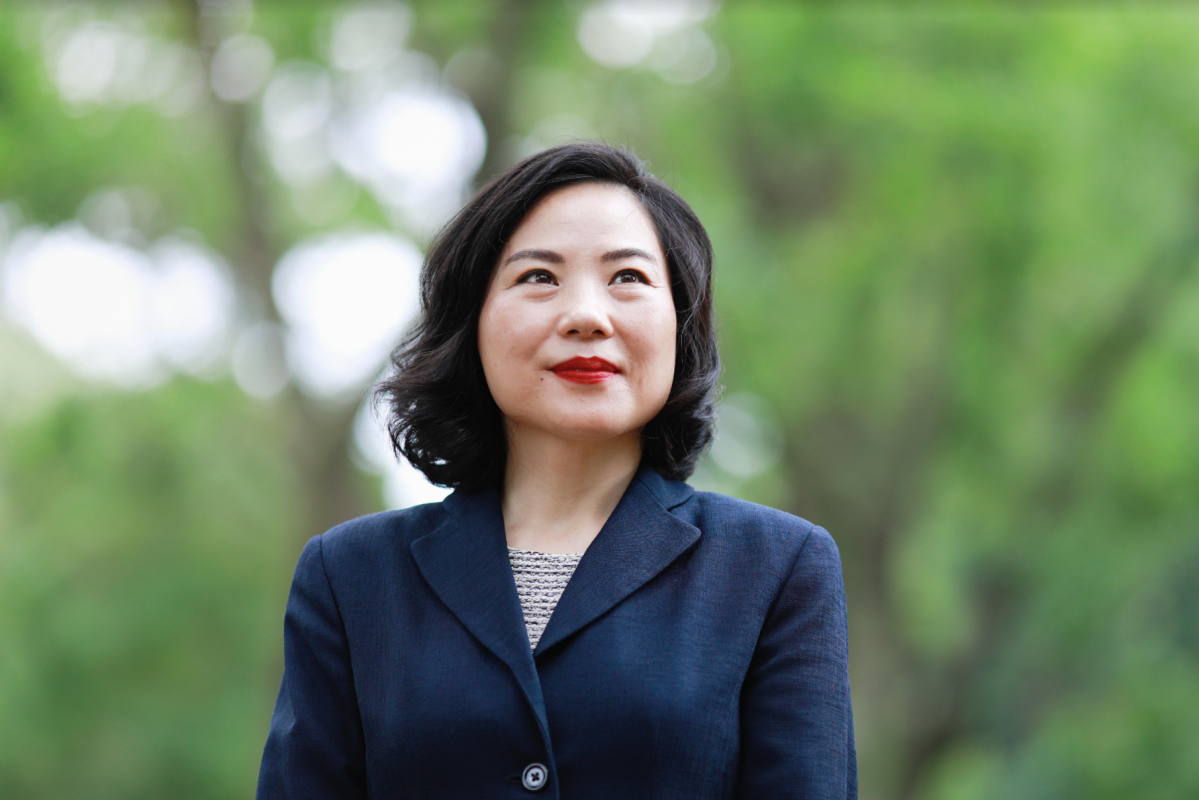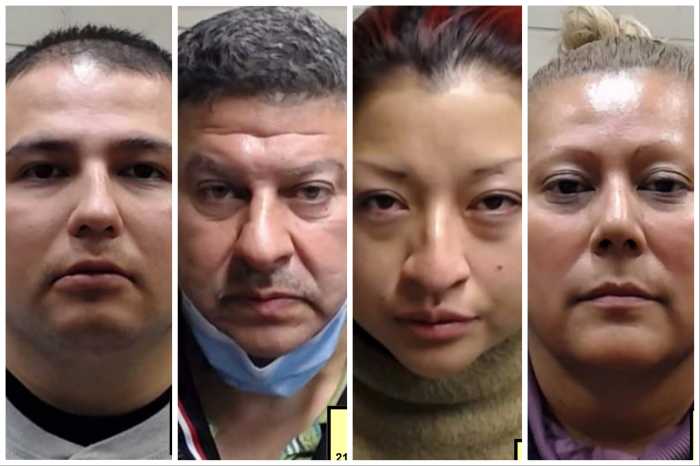As one of two remaining candidates vying to head the Queens Surrogate’s Court, Judge Wendy Li, 54, is making the case to choose experience over endorsements.
Li arrived in the United States at 28, but it was not until she was in her 40s that she obtained the right to vote in the United States. But the decades-long journey to citizenship did not deter her from climbing the legal ladder, from associate to partner to judge. Equipped with several degrees from around the world, she spent years in the private sector before being elected as judge to the New York Civil Court six years ago.
“When I actually ran for the civil court judge in 2018, people told me not to run because I was not born here in this country,” recalled Judge Li. “But I didn’t listen. I ran and I won.”
Now she hopes to win her second election. If elected to the Surrogate’s Court, Judge Li will rule on cases pertaining to wills, estates and deeds across Queens. This court maintains jurisdiction over all proceedings related to the affairs of descendants of the dead, as well as certain types of guardianship petitions and adoptions.
Throughout the six years she has been on the bench in civil court, she has issued thousands of judicial decisions. Of those, 71 were published in the New York Law Journal after what she says were countless late nights in her chambers after a full day spent in the courtroom.
Now, with a collective 25 years of legal experience under her belt—as both a lawyer and judge, she envisions a more efficient and equitable surrogate’s court for all, but especially more vulnerable groups such as immigrants, low-income residents and the disabled.
A major aspect of her platform is to increase accessibility and efficiency in the surrogate court to make it more litigator-friendly. Currently, she says that the probate process is too complex to navigate without legal representation, even for small estates. For low-income residents who cannot afford a lawyer, the court can be overwhelming.
One of her accessibility proposals is to add a night court option, already available in civil court, for those who cannot take time away from work.
“It’s important to help unrepresented litigants,” said Li. “Night court is very important for the people who are underrepresented.”
But Judge Li noted that language accessibility – especially given that more languages are spoken in Queens than anywhere else in the world – is very important. She proposes increasing the capacity for interpreters to make it easier for non-English speakers to navigate the system without needing to hire representation.
In terms of increasing efficiency, she says that with the right technology the process can also be streamlined for litigants. More unified forms that can be accessed online would be another way of making the court more accessible for those without legal representation. And she is not opposed to utilizing artificial intelligence to create a more efficient court.
Looking back at the past six years spent as a judge in the civil court, which deals with a range of disputes from housing to contract breaches, Judge Li recounts that some of her most difficult cases were disputes among loved ones.
“I have seen fathers sue sons, and sons sue fathers and loved ones sue each other,” recalled Judge Li. “I saw those relationships go sour because of the money issue.”
She believes that years of deciding on those types of familial cases in the courtroom make her the best candidate for the surrogate court. But on a more personal level, she said her experience with immigration adds another layer of corresponding experience with those she will hear out in court.
“As an immigrant, I often struggled, and I have been taken advantage of,” said the judge on her own experience of being in vulnerable positions earlier in her life after immigrating from China.
Since the cases presented in the Surrogate’s Court can be intimate, she believes they warrant a level of care to ensure that litigants feel protected by the system. The responsibility is to ensure that what is left behind of their loved ones is respected and protected according to their wishes.
“Queens is due for a surrogate like me that could administer independently, and bring efficiency to the surrogate’s court,” said Judge Li on why she is hoping voters tick her name on the ballot.
She says her campaign is grassroots. While focusing on her current judgeship, she has been making time to campaign and now has the equivalent of two full-time jobs, she said. However, after serving as a partner in an international law firm, she says she is used to the workload.
Prior to taking the bench, she was a law partner at two different private firms that specialize in financial services. Her work in the private sector included trust and estate planning for families, which is in line with the cases presented in the Surrogate’s Court.
She received her bachelor’s law degree from Peking University in 1995, another from Southern Methodist in 1999 and a Master of Science in Law and Finance from the University of Oxford in 2012. More recently, she also completed a certificate in international relations from Harvard University in 2018.
But her opponent, Judge Cassandra Johnson, who has a lengthy judicial career, was formally endorsed by Rep. Gregory Meeks, who chairs the Queens County Democratic Party. She is also endorsed by Queens Borough President Donovan Richards.
In response to missing out party endorsements that her challenger has secured, Judge Li says, “If you don’t have a seat at the table, you bring your own folding chair.”
And with her folding chair, she is bringing decades of experience that she is hoping will speak for itself.
“I think the power of the people is greater than the machine endorsement,” said Li. “The people of Queens will win this race.”
Early voting will run from June 15-23, 2024. The last day to vote is on the June 25 election.



































